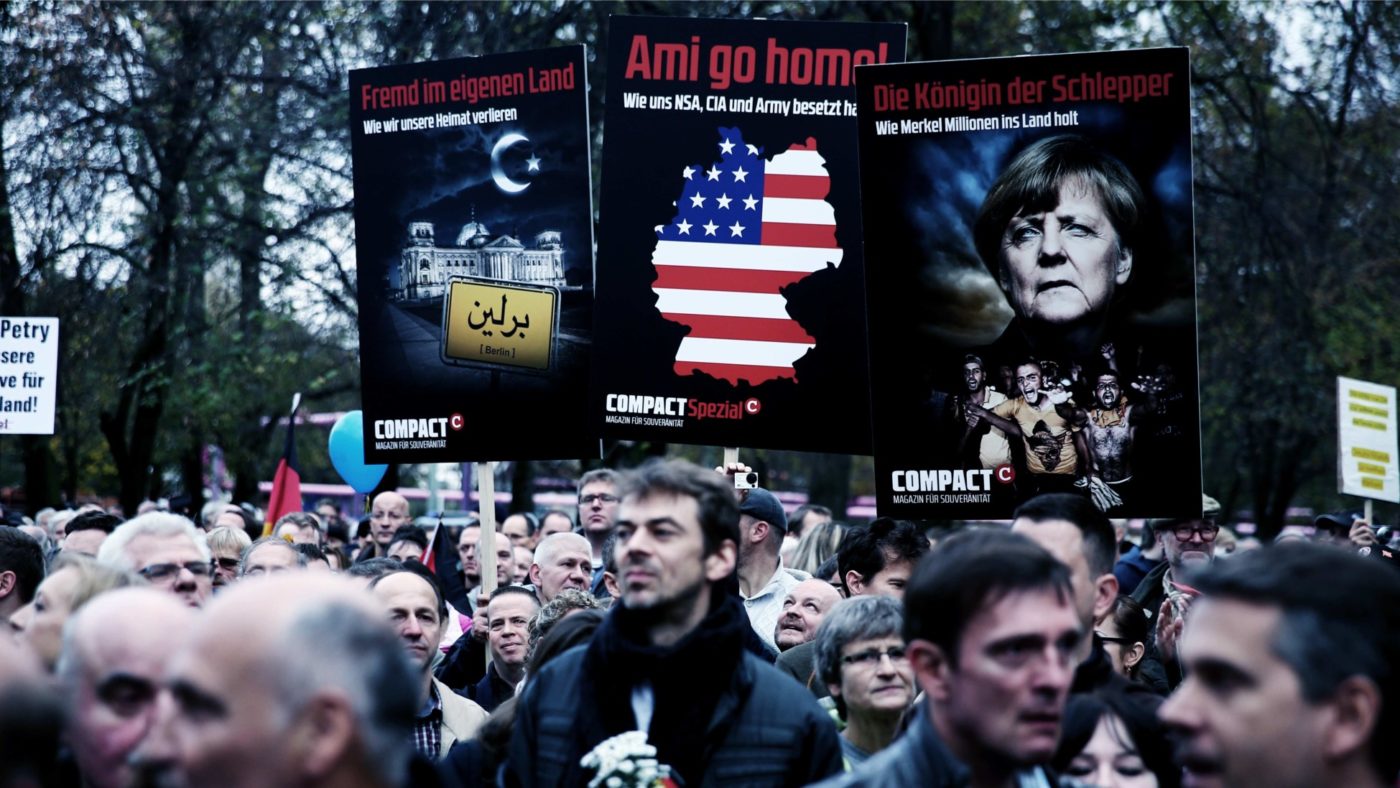In a little under three weeks’ time, the Germans will be heading to the polls. Angela Merkel is poised to be re-annointed Chancellor. But while her party, the Christian-Democrat CDU/CSU should easily regain power, the German parliament is set to become more diverse – and not necessarily in a good way. Both the liberal democrat FDP and the right-wing AfD are expected to breach the five per cent threshold and make their way into the Bundestag for the first time.
While the FDP’s arrival should be welcomed, feelings are mixed about the AfD, a party which initially promised much to free-market Eurosceptics.
Alternative für Deutschland, was set up in 2012 by a group of German conservatives and classical-liberal economists who had defected from Angela Merkel’s centre-right movement and the traditional liberal-democrat party. Their platform was a eurosceptic one, or at least what might be considered eurosceptic for the Bundesrepublik. Conservative MP Jacob-Reese Mogg commented on the AfD-phenomenon in 2014 by saying: “German euroscepticism is milk to British euroscepticism’s brandy.”
The early AfD campaigned against increasing EU integration and the common currency, and opposed internal market regulations such as the minimum wage. In fact, some of its early members, including Hans-Olaf Henkel, former manager at IBM and chairman of the German Industrial Association BDI, were also a part of the Hayek Society.
But then, in 2015, the party took an unfortunate turn. One of the AfD’s high-ranking members, Björn Höcke, co-authored the Erfurter Resolution, which suggested a major policy shift in the party. The new aim of the party, according to this manifesto, should be as “a movement of the German people against the societal experiments of the past decades (such as gender-mainstreaming and multiculturalism)”.
Höcke is something of a controversialist: he has described Judaism and Christianity as being in a “struggle” against each other, and has wished Germany a prosperous “1,000-year future” – a well-known Nazi phrase. His resolution followed months of party infighting, with far-right ideologues blaming moderates for the AfD’s bad performance in local elections.
In the end, the strongly anti-immigration wing of AfD flexed its muscles and the the Erfurter Resolution was adopted with an overwhelming majority. The newly radicalised party quickly backed away from any previous thoughts of economic liberalism. And the new chairman, Frauke Petry, performed complete u-turns on major policies: she had, for example, previously called the minimum wage a product of “neo-socialism” and called for its abolition; today the AfD insists on it to “protect workers”.
Talk show appearances no longer featured economics professors, but activists preoccupied with the German Leitkultur (lead culture) and how multiculturalism was dismantling it. At rallies, discussions about monetary policy were replaced with flamboyant speeches about the great German culture, with crowds aggressively denouncing Chancellor Merkel as a “traitor” and with the term Lügenpresse (literally: “lying media”, another reference strongly associated with the Hitler era) liberally bandied about.
In this way, the ‘patriotic’ Right is ditching its founding members’ small-government approach, and morphing into a German version of the French National Front or the Freedom Party in the Netherlands. The AfD might loudly declaim what they describe as socialism, but the party is no longer liberal. It couldn’t be further from the liberalism of the post-war moderniser Ludwig Erhard, who spoke about lifting regulatory and fiscal burdens from the shoulder of hard-working Germans.
In fact, the AfD is mainly obsessed with the importance of “maintaining christian values” and limiting the influx of refugees. Its 2017 manifesto may state an intention to “make government smaller”, but it sketches plans for investment in infrastructure and large tax cuts, without any suggestion of where it might cut spending. It is more than likely that the final weeks of the campaign will reveal that AfD is brewing a toxic mix of borrowing and spending – hardly a free market approach.
The AfD’s classical liberal founders have long departed, founding their own movements and splintering into irrelevancy. But they should come back and make a stand: they should push the FDP and its leader Christian Lindner and praise its economic liberalism. And they should eschew that group of populist individuals which has thrown its small government principles out of the window and replaced its free-market rhetoric with the provocative language of the 1930s.


